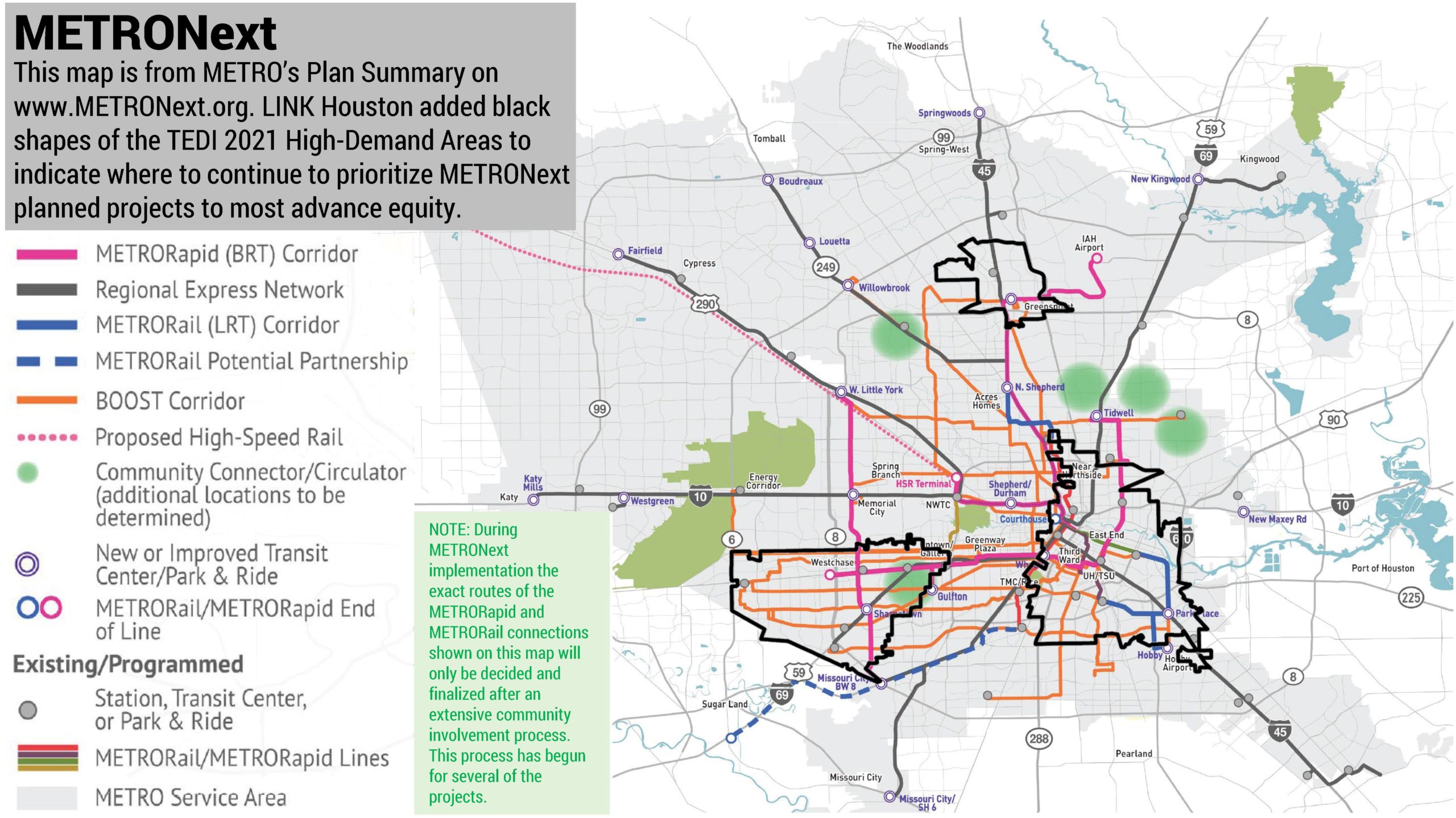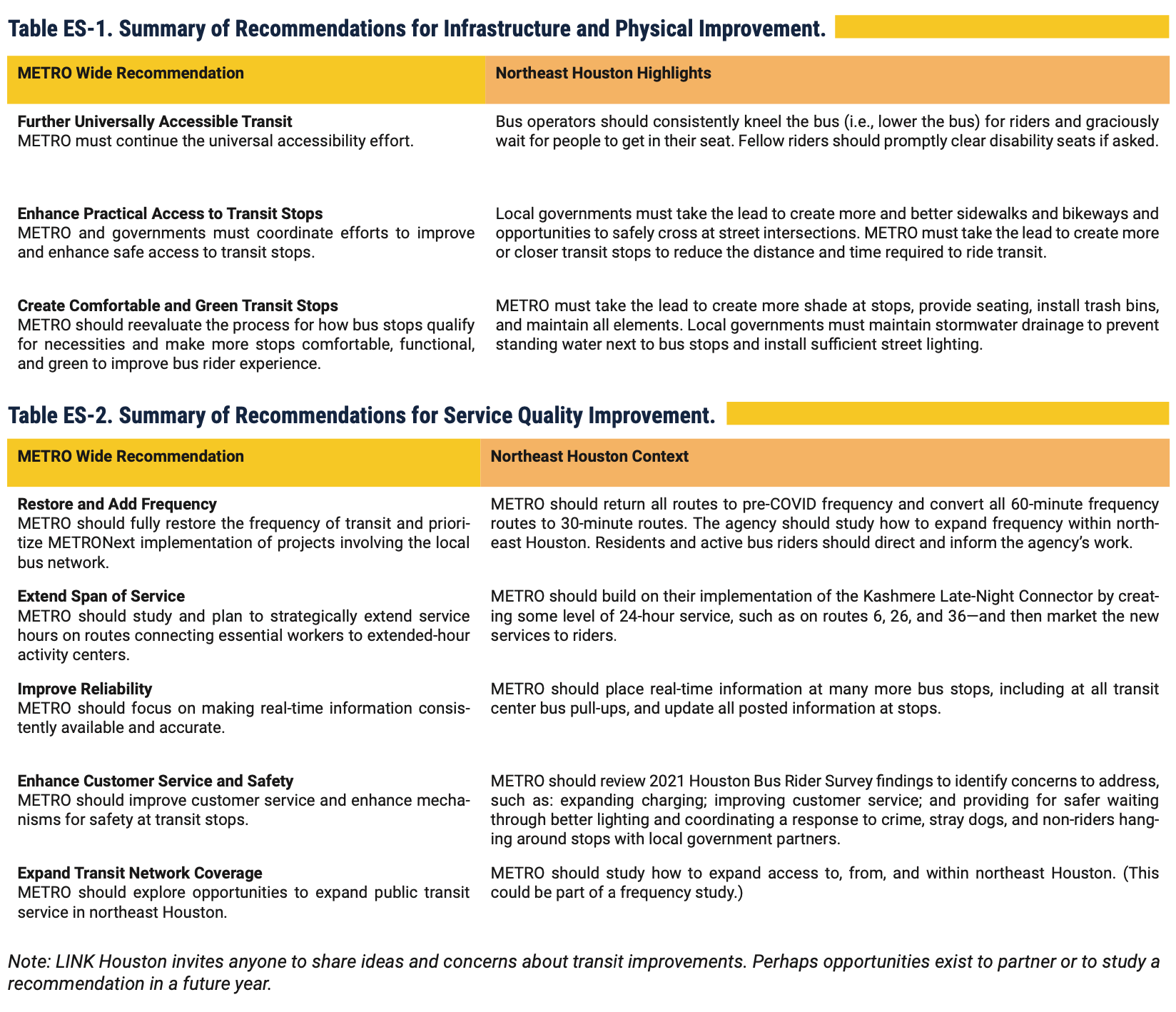
Explore the report
Executive Summary
Public transit plays a central role in connecting people to jobs, education, health care and many other opportunities. Equity in Transit: 2021 combines data analysis and riders’ experiences collected through the 2021 Houston Bus Rider Survey. The report explores how transit has, and should, connect people to opportunity in Houston, with a particular focus on 6 communities of color in northeast Houston. The report aims to build on previous editions of LINK Houston’s Equity in Transit studies by influencing both infrastructure improvements and bus service quality improvements for the Metropolitan Transit Authority of Harris County, TX (METRO). Drawing on this analysis, transit riders and advocates can continue to hold transit decision-makers accountable.
Nearly 4.6 million people live in the METRO service area, of which 3.2 million are people of color. The 2021 Transportation Equity Demand Index (TEDI) found 891,000 people live in high-demand areas with inordinately high rates of:
- Poverty (23% of households vs. 11% in all other areas)
- Households with no vehicle (11% of households vs. 4% in all other areas)
- People using primarily transit to access work (5% of employed people vs. 2% in all other areas)
The 3 areas combine for a year-on-year increase of 24,000 people and 4-square miles, demonstrating many Houstonians need affordable transportation to safely and reliably reach opportunity with dignity.
The COVID-19 pandemic continues to pose economic, social, and health challenges on individuals and families across the Houston region. The report analysis indicates ridership on local bus and rail never dipped below 43% of normal ridership during the pandemic and was back up to 58% in August 2021. Per the 2021 Houston Bus Rider Survey, bus riders in northeast Houston expressed clear expectations for bus service to return in full force and be further improved in a variety of ways. LINK Houston and the northeast Houston community research team make recommendations for infrastructure and physical improvement (improving people’s opportunity to reach stops and wait, see Table ES-1) as well as service quality improvement (improving people’s opportunity to reach destinations, see Table ES-2 on the next page).
The process to implement recommendations is as important as the outcome. Full and consistent inclusion of active riders and community residents in decision-making is imperative for specific equitable improvements to occur and systemic change to result. LINK Houston urges METRO and stakeholders to continue to prioritize investments in TEDI high-demand areas (see Figure ES-1) and seeks continued opportunities to support communities through education and collaborative action.

